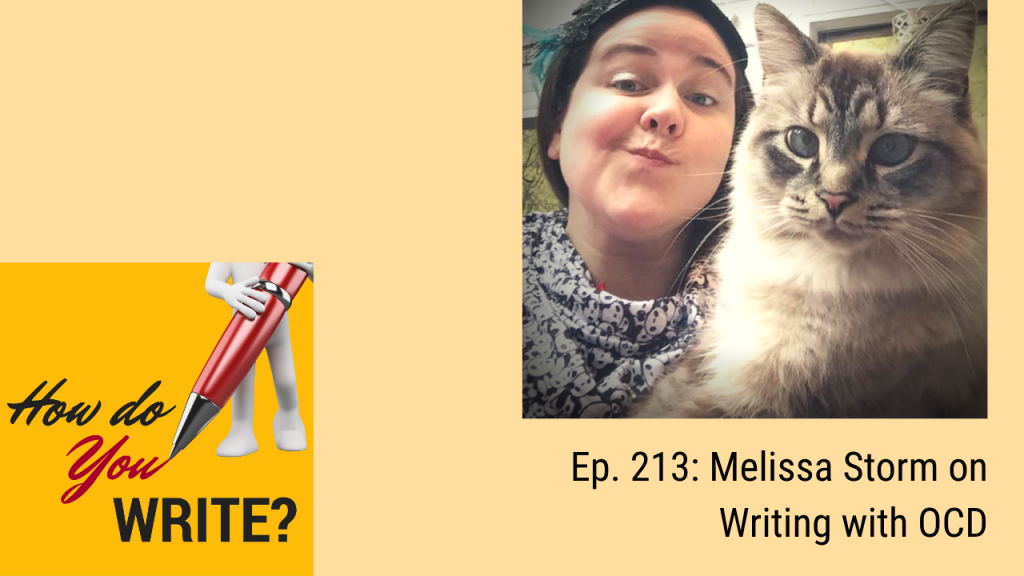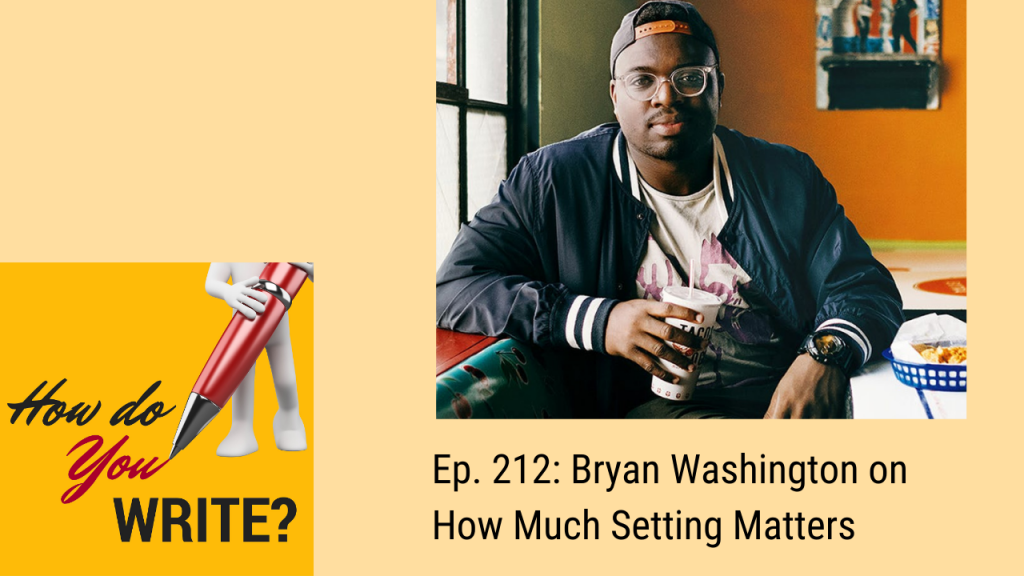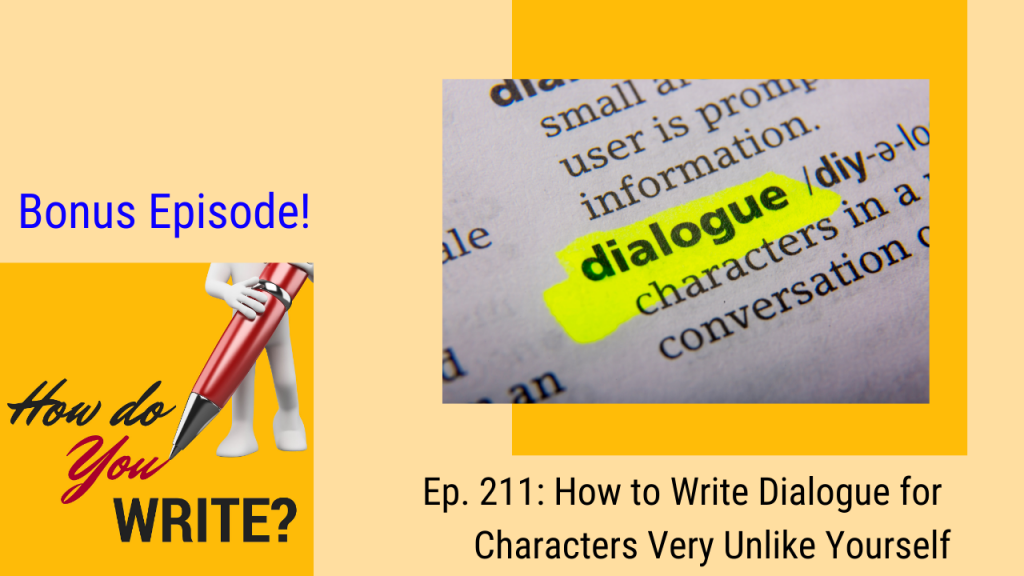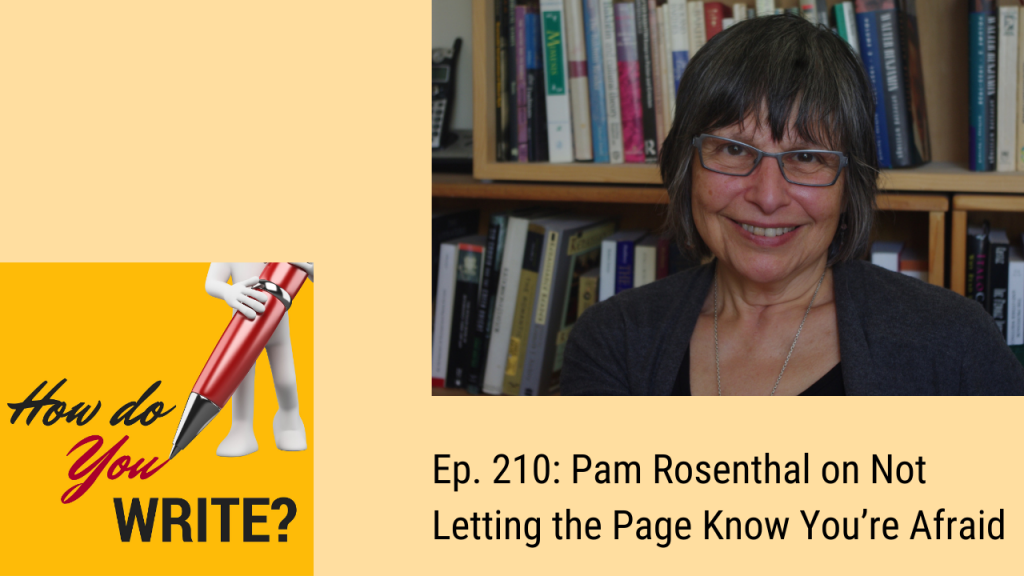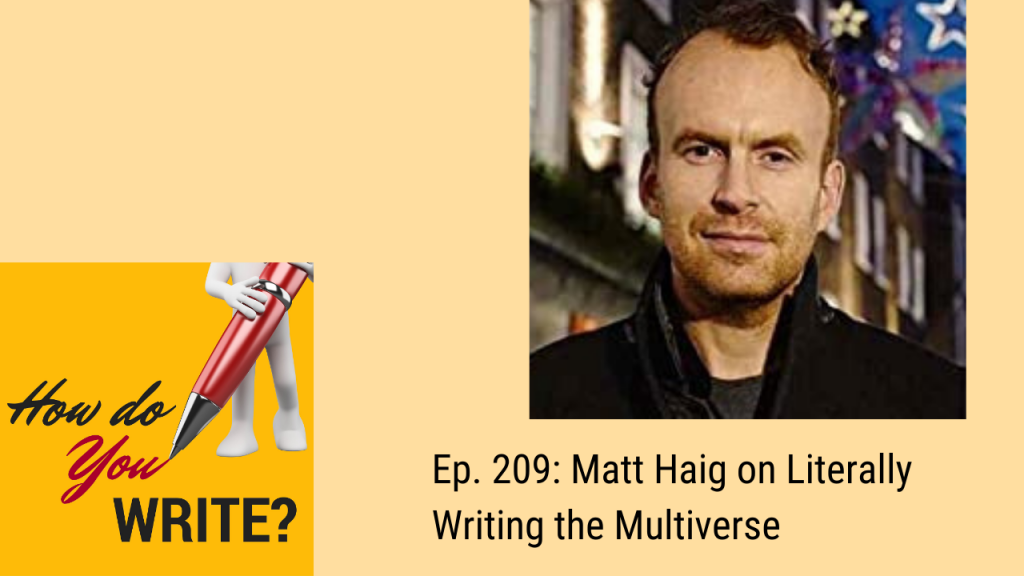Bonnie Tsui is a journalist and longtime contributor to The New York Times. She is the author of American Chinatown, winner of the Asian/Pacific American Award for Literature and a San Francisco Chronicle bestseller. Her new book, Why We Swim, was published by Algonquin Books in April 2020; it was a New York Times Book Review Editors’ Choice, a Boston Globe bestseller, and an L.A. Times Book Club pick and bestseller. Her first children’s book, Sarah & the Big Wave, about big-wave women surfers, will be published by Henry Holt for Young Readers in May 2021.
How Do You Write Podcast: Explore the processes of working writers with bestselling author Rachael Herron. Want tips on how to write the book you long to finish? Here you’ll gain insight from other writers on how to get in the chair, tricks to stay in it, and inspiration to get your own words flowing.
Join Rachael’s Slack channel, Onward Writers!
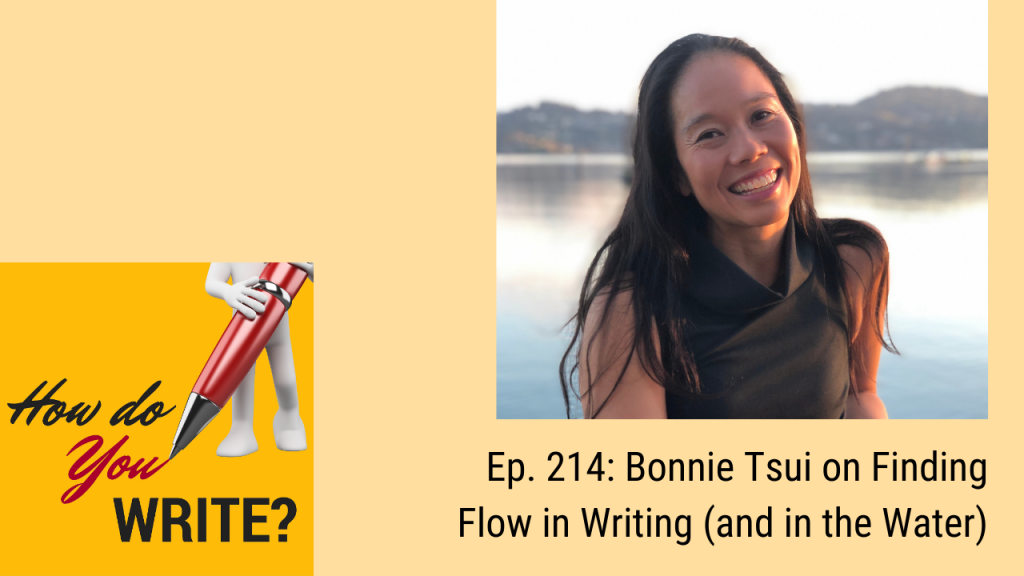
Transcript
Rachael Herron: [00:00:00] Welcome to “How do you Write?” I’m your host, Rachael Herron. On this podcast, I talk to authors about how they write, what their process is and how their lives fit together. I’ll keep each episode short so you can get back to writing.
[00:00:16] Well, Hello writers! Welcome to episode #214 of “How do you Write?” I’m Rachael Herron. And if you watch on the YouTube or you might just be able to hear the smile in my voice, I’m so excited to be sharing with you today my interview with Bonnie Tsui for, for her book, Why We Swim. As you may know, I have become a swimming aficionado in the last year and a half or so. I never would have taken winter off had I known that come March, I would not be able to keep swimming the way that I wanted to. So when I saw her book in the store, I had to have it, I grabbed it, I read it, I loved it. And she was kind enough to come on the show and talk about the writing and talk about swimming a little bit, and I just couldn’t be more thrilled to have spoken to her. So I hope you do enjoy that, which is coming up and around here, things are moving briskly. I am about 62,000 words into the book that I’m writing. And actually right now, today, I’m having a little bit of a panic moment where I realized as usual, I don’t have a plot and maybe I need to have a dark moment that I’m moving toward and maybe I need to have something that makes that dark moment happen. [00:01:41] So this afternoon I will be spending some time actually thinking, using some of the intellection quality from the Clifton strengths that I need to write my books, so I’m kind of looking forward to doing that and rejiggering some things. What I don’t do in a first draft ever is go back and fix anything that would bog me down and I would never move forward. But I do need to remind myself of what’s actually in the book. So about at this point, every time during a book, I like to, I have a little process that I do to look over the book and kind of remind myself of what’s in there. What my goal was, who these characters are, it’s time to get in there and just touch these things again, so I’m kind of excited to do that. Also, it means that I don’t have to do my word count today because my work is actually going to be rejiggering. And I’m only going to spend a few hours this afternoon doing it, doesn’t need to be done again. And then tomorrow I’ll be right back into the first drafting again, which I’m still really loving. So, I’m a brand new person when it comes to that kind of thing. [00:02:47] What else is going on? It has been just very busy lately as I closed out one section of 90-days-to-done and 90-day-revision, and this is your official announcement. It is probably, I’m going to say almost, most definitely your only announcement that you will get, if you have been thinking about joining 90-days-to-done, I actually opened two sections this time because of demand and the first one is full. It filled up almost instantly. And I have about four slots left in the second section. So I’m going to tell you a little bit about what 90-days-to-done is about. So this is, this is what it is. The section that is open, we’ll meet on zoom starting January 1st, going through March 31st, we’ll meet on zoom at, on Tuesdays at 4:00 PM Pacific time, 7:00 PM, Eastern time. So if that doesn’t work for you, you can just tune this out. But this is what we do in 90-day- to-done. It is for people who want to write their books and it’s just been taking them longer than they thought. It is for people who have never put up word on the page. It is also for people who have half a book, 75% of a book, but just can’t get to the end. It is for novels and memoirs. What it is not a useful class for is nonfiction. [00:04:12] That is about, you know, how to start your business, that kind of really straight up nonfiction. But if you’re writing a novel or a memoir, this class is for you. It is creativity within constraints. You have 90 days, you don’t have six months. You don’t have a year. You are not wasting time. You do the work because of this constraint and be, and what is the really magic part is that it will be better. Your work will be better because of that constraint. I like to remind people that it is never easy to find the time to do the writing of your heart. And it only gets harder as we move forward in our lives. So the time is now, if you want to do this, what else are we doing in this class? I’m just looking at the page here. If you are interested in this, you could go look at it rachaelherron.com/90daystodone the number 90, nine-zero days to done, what you get in it is accountability. You get the one hour weekly live class where there are, a rotating hot seat where we talk about your work. Each meeting is recorded and shared afterward in case you can’t attend live, but I do expect you to attend most of them live because that’s where, so much of the good juicy-ness is, is talking with each other about our work. You get a detailed plan of action every week I teach something new, while at the same time you are writing your book. There is homework, it’s a doable word quota based on your goals. There is no critique in class. However, you, there is a way that you can share some of your work with me. First drafts are too early to critique that kills writers, it stalls writers in their tracks. This is not the class to do that. But the accountability, that action plan is there and you get community, these communities that I put together in 90-days-to-done, they stick together. They stay together. [00:06:13] My classes that ended last week have already met this week without me to continue meeting together and supporting each other. Just wanted to share a couple of testimonial quotes, and then we will jump into the interview. But Beverly Armie Williams said about 90-days-to-done; “This wasn’t the first novel I’ve ever finished, but it may well be the least painful one I’ve written. Don’t get me wrong, I love to write, or rather, as the saying goes, I love to have written, but if I’m going to have written, I got to write. And 90-days-to-done provided the space, helped me carve out and commit to the time and built a supporting, supportive writing community in order to get that novel finished. Best of all, Rachael offered craft lessons, useful as a brush-up if you studied writing and priceless if not, answered any and all questions without making me feel dumb and a weekly meeting that was the cornerstone of our community. Rachael’s lessons and handouts are clear, smart, and sensible. Just what a writer needs during the thrills and bumps of getting a novel done in 90 days. And actually Beverly just finished 90 day revision with me too. So that was awesome. [Read more…] about Ep. 214: Bonnie Tsui on Finding Flow in Writing (and in the Water)